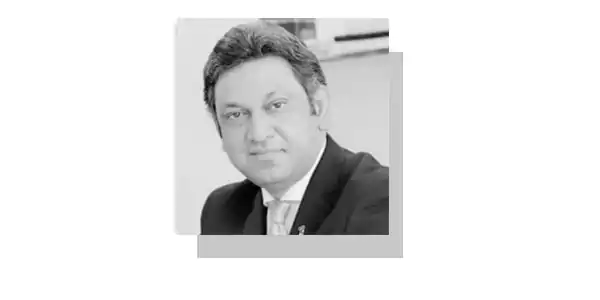AFTER each democratic government’s tenure, Pakistan frequently finds itself in a familiar situation. An interim government or military administration steps in, pledging crackdowns on corruption and transparency reforms. Yet, persistent doubts linger—do these measures divert attention from deeper systemic issues and administrative failures? The recent spate of crackdowns suggests that the prior Pakistan Democratic Movement (PDM)-led government may not have effectively addressed these underlying problems.
Now, as crackdowns target economic challenges, petrol and gold smuggling, electricity theft, illegal water hydrants, and corrupt bureaucrats, a critical question arises: “Are these actions genuinely addressing the structural problems and poor governance plaguing the nation?” At the heart of the issue lies bureaucracy. Originally a state-oriented institution, it has evolved into a political bureaucracy, fostering bureaucratic incompetence and enabling corruption to flourish. This has led to corruption and mismanagement permeating various institutions, hindering effective problem-solving. The problem is exacerbated by successive governments’ reliance on the same corrupt bureaucracy. Meanwhile, Pakistan lags behind neighbouring nations in terms of progress and development.
In the current context, this sweeping crackdown is unfolding across sectors, implying the prior PDM government’s ineffectiveness. Rather than curbing inflation, the interim government has triggered historic increases in petrol and electricity prices, burdening the populace. This inflation is attributed to the PDM government’s irreversible IMF agreement commitment. Simultaneously, crackdowns target widespread embezzlement, smuggling and corruption, led by Interim Prime Minister Anwarul Haq Kakar but widely acknowledged to be orchestrated by Army Chief General Syed Asim Munir. Consequently, a significant crackdown has devalued the dollar against the rupee, with more anticipated.
The crackdown on electricity thieves, prompted by an IMF agreement that hiked electricity prices, has sparked nationwide protests. However, questions loom regarding the crackdown’s capacity to address the core issues, including the dilapidated transmission system and past government decisions that contributed to soaring electricity costs. Another crackdown focuses on sugar smugglers, a persistent problem that has led to rising sugar prices. Intelligence reports implicate political leaders and bureaucrats in this illicit trade, raising doubts about whether this initiative will effectively target and apprehend those responsible for the expensive sugar market. Meanwhile, the smuggling of Iranian petrol into Pakistan, driven by a significant price gap, remains a challenge. International technical obstacles hinder official fuel imports, and it begs the question of whether Pakistan can navigate these hurdles to import more affordable fuel from Iran and boost its economy.
Dollar smuggling, largely driven by illegal Afghan nationals, is another concern. Previous mismanagement exacerbated the depreciation of the local currency. The crackdown’s efficacy in curbing smuggling and stabilizing the currency exchange rate remains uncertain. Gold smuggling, rampant both within and outside Pakistan, is also under scrutiny. The absence of records on gold holdings, along with terror organizations’ involvement in smuggling, has prompted a crackdown. Success in reducing gold prices and bolstering the national treasury depends on the outcomes of this initiative. Finally, the illicit sale of water through illegal hydrants has become a common practice in Pakistan, particularly in tax-contributing Karachi. While efforts are underway to crack down on these operations, corruption within the Water and Sewerage Board and the incompetence of officials pose significant challenges. Whether this crackdown can effectively combat water theft and improve Karachi’s water delivery system remains uncertain.
In this context, Pakistan faces critical questions about the ability of these crackdowns to address underlying issues and instigate much-needed reforms within these sectors. A crackdown is also underway against corrupt bureaucrats who thrived during the 15-year rule of the PPP. The pervasive corruption among government officials, deeply ingrained within the system, has facilitated embezzlement of national funds through practices like costly transfer postings. Despite attempts to evade accountability through plea bargaining and defiance of Supreme Court orders, corruption within government institutions has been exposed. Raids on officials’ homes have uncovered vast sums of money, along with gold and diamond jewellery. The effectiveness of the recent crackdown in reclaiming embezzled wealth and curbing this culture of corruption remains to be seen. Additionally, the media’s role has shifted, with concerns about impartial reporting and serving the nation’s interests. Instead, it appears that external influences may be directing media narratives.
As the crackdown unfolds across multiple fronts, Pakistan finds itself at a crucial juncture. It grapples with deeply rooted corruption and systemic challenges that persist despite ongoing efforts. Led by a dedicated task force under the guidance of Army Chief Syed Asim Munir, these endeavours represent commendable steps towards a more transparent and accountable future. Yet, it’s imperative to acknowledge that these crackdowns resemble minor surgeries, addressing localized issues while the chronic disease of corruption continues to afflict Pakistan since its inception. A comprehensive healing process is essential, one that transcends individual initiatives and permeates every aspect of governance and society. Only then can Pakistan aspire to stand as a beacon of integrity, progress, and prosperity on the global stage.
—The writer is a senior journalist and columnist.
Email: [email protected]










